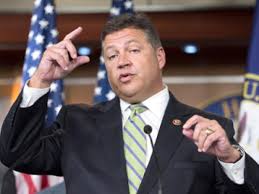
Last year, the AIRR Act failed to pass the Senate and was eventually tabled; wrangling in Congress resulted in a down-to-the-wire extension of the existing authorization, valid until September. Now, with President Trump’s full support for the privatization of Air Traffic Control, Shuster has revived the Act.
For those interested in reading the exact text, the drone section starts on page 228 – but there isn’t much there. The authors of the “new” bill clearly cut and paste sections from old documents, which don’t provide much of use other than a damning reminder of failed deadlines:
(3) DEADLINE.—The plan required under paragraph (1) shall provide for the safe integration of civil unmanned aircraft systems into the national airspace system as soon as practicable, but not later than September 30, 2015.
The bill calls for a risk-based system of categorization, a pilot program for drone detection systems, and a “UAS Privacy Review” – none of which are new in this version of the bill. In an almost humorous oversight, the new version still calls for an evaluation of the drone registration program – now ruled as unlawful by a federal appeals court.
While past bills have seen pieces of drone legislation added and tweaked as the bill passes through Congress, one section that also remained unchanged in this version of the bill is the “Sense of Congress,” which does not bode well for the drone industry.
It is the sense of Congress that—
(1) the unauthorized operation of unmanned aircraft near airports presents a serious hazard to aviation safety;(2) with increasing regularity, pilots are report- ing near misses with unmanned aircraft at low altitudes during critical phases of flight, either on final approach or shortly after takeoff;
(3) a collision between an unmanned aircraft and a conventional aircraft in flight could jeopardize the safety of persons aboard aircraft and on the ground;
While there are sure to be changes to any piece of legislation, until the “sense of Congress” shifts the drone industry will still be fighting an uphill battle for reasonable regulation.
Miriam McNabb is the Editor-in-Chief of DRONELIFE and CEO of JobForDrones, a professional drone services marketplace, and a fascinated observer of the emerging drone industry and the regulatory environment for drones. Miriam has penned over 3,000 articles focused on the commercial drone space and is an international speaker and recognized figure in the industry. Miriam has a degree from the University of Chicago and over 20 years of experience in high tech sales and marketing for new technologies.
For drone industry consulting or writing, Email Miriam.
TWITTER:@spaldingbarker
Subscribe to DroneLife here.